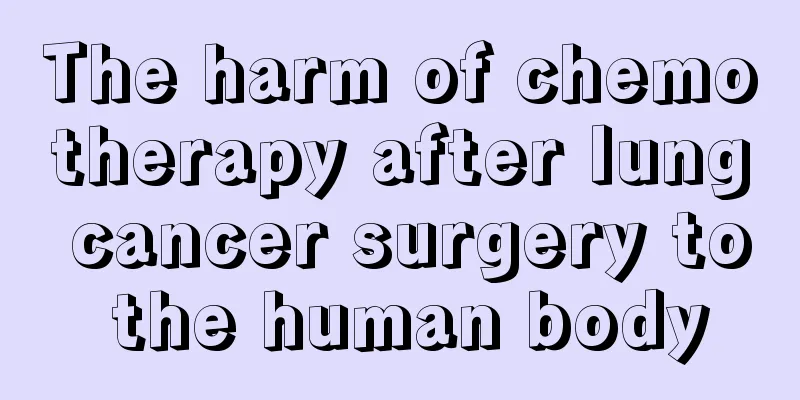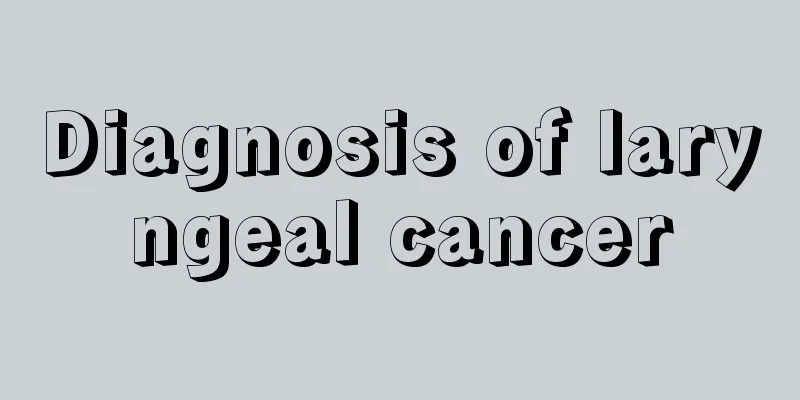The harm of chemotherapy after lung cancer surgery to the human body

|
Chemotherapy after lung cancer surgery is harmful to the human body. While chemotherapy drugs kill cancer cells, they also affect normal tissue cells. Its side effects mainly depend on the specific drugs and dosage. Common side effects of chemotherapy include nausea, vomiting, hair loss, oral ulcers, fatigue, etc. 1. Physical weakness: patients may experience general fatigue, mental depression, sweating, drowsiness, etc. 2. Decreased immune function: Chemotherapy drugs can damage the patient's immune system, leading to immune deficiency or decline. Immune function indicators such as E-roset test, CH50, C3 complement, T cell subsets, NK cell activity, interleukin II, etc., can all decrease to varying degrees after chemotherapy compared to before chemotherapy. Most anti-tumor chemotherapy drugs have immunosuppressive effects. 3. Bone marrow suppression: Most chemotherapy drugs can cause bone marrow suppression, which is manifested as a decrease in white blood cells and platelets, and even a decrease in red blood cells and hemoglobin. 4. Digestive disorders: decreased appetite, reduced food intake, nausea, vomiting, abdominal distension, abdominal pain, diarrhea or constipation, etc. Many chemotherapy drugs cause the above symptoms by irritating the gastrointestinal mucosa. 5. Inflammatory reaction: fever, dizziness, headache, dry mouth, mouth sores, etc. 6. Cardiotoxicity: Some chemotherapy drugs can produce cardiotoxicity, damage myocardial cells, and cause patients to experience panic and palpitations. Symptoms include chest tightness, discomfort in the precordial area, shortness of breath, and even heart failure. Electrocardiogram examination may show T wave changes or ST segment changes.7. Kidney toxicity: Some chemotherapy drugs in large doses can cause kidney damage and cause back pain, kidney discomfort, etc. 8. Pulmonary fibrosis: Cyclophosphamide, vincristine, bleomycin, etc. can cause pulmonary fibrosis. Chest X-rays show thickening or cord-like changes in lung texture. This is more dangerous for patients with poor lung function in the past, and can even be life-threatening. 9. Phlebitis: Most chemotherapy drugs are administered by intravenous drip, which can cause varying degrees of phlebitis. The color of the diseased blood vessels turns dark red or dark yellow, causing local pain and cord-like sensation when touched. In severe cases, it can lead to thrombotic phlebitis and blood flow obstruction. 10. Nervous system toxicity: mainly refers to the damage of chemotherapy drugs to peripheral nerve endings. Patients may experience numbness and dysesthesia of the extremities. For example, vincristine, vinblastine, vinblastine, and novoben may cause neurotoxic side effects to varying degrees. 11. Liver toxicity: Almost all chemotherapy drugs can cause liver damage. In mild cases, liver function abnormalities may occur and patients may experience discomfort in the liver area. In severe cases, toxic hepatitis may occur. 12. Cystitis: Ifosfamide, cantharidin, camptothecin, etc. can cause patients to experience a series of symptoms of drug-induced cystitis, such as lower abdominal discomfort or distension, hematuria, etc. |
<<: The hazards of radiotherapy for brain metastasis of lung cancer
>>: The dangers of lung cancer puncture
Recommend
How to treat lung cancer to relieve pain? These prescriptions can relieve the pain of lung cancer patients
I think everyone will be terrified when they hear...
Can patients with nasopharyngeal cancer eat preserved eggs
It is not recommended for patients with nasophary...
Can I eat pineapple if I have high blood sugar? What are the benefits?
Pineapple is the most common fruit in March and A...
Can enzymes cure constipation?
Many people usually have the habit of taking enzy...
Methods to regulate emotions
The mood of ordinary people is closely related to...
Instructions for use of Fufang Xinbu Granules
When the seasons change or the weather changes, m...
Should the air cushion powder puff be used dry or wet
In recent years, Korean cosmetics have become ver...
Can nasopharyngeal cancer cause edema in the ear?
Can nasopharyngeal cancer cause ear effusion? 1. ...
How to preserve wax apples, these preservation tips
Normally, you probably don't get to eat wax a...
Mycoplasma pneumoniae positive
When patients are infected with Mycoplasma pneumo...
Helicobacter pylori antibody typing
Gastrointestinal diseases are a potential threat ...
What are the ways to prevent liver cancer? 4 tips to teach you how to effectively prevent liver cancer
Experts point out that there are countless patien...
Does bloody vaginal discharge mean cervical cancer? What are the pathological characteristics of cervical cancer?
The lesions of the female internal reproductive o...
What should patients with esophageal cancer pay attention to in their diet
In order to ensure smooth chemotherapy, esophagea...
The dangers of not wearing dentures after tooth extraction
In our daily life, it is not difficult to find th...









